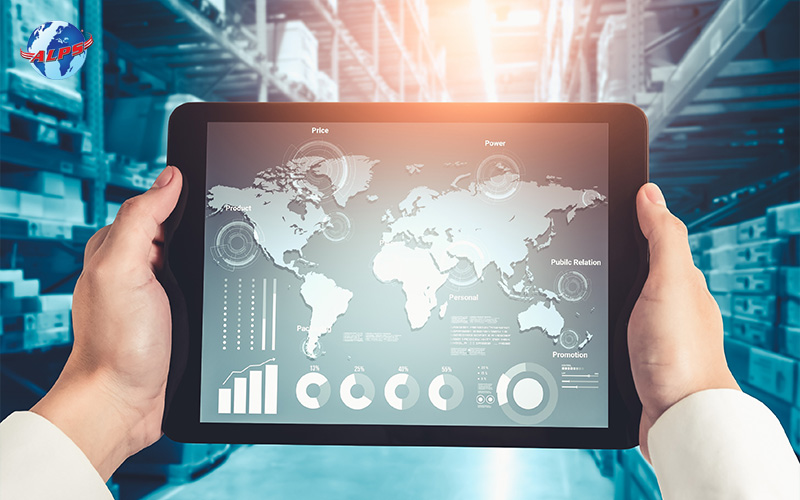Seas have always been important to people all around the world as a means of transportation. Ocean freight and air freight are by far and away the only two methods employed for international distribution.
While the difference between these two types of shipping is obvious given that one is transported by aircraft and the other by ship, the choice of using the sea or the air for freight transportation depends on a variety of criteria.
What Do You Know about Ocean Freight Services in Singapore?

Every time you choose to ship something across the world, there are a few considerations that must be made. Both sea and air freight modes have benefits and drawbacks. The cost, reliability, volume, and speed at which the commodities are transported to the desired destination are these four factors. You also need to take time, security, distance covered, environmental impact, and logistics into account when choosing one.
There are a wide range of sea freight services in Singapore. Read on to learn more about the advantages and disadvantages of international sea freight shipping.
Advantages of Ocean Freight Shipping?

Cost-effectiveness, easy maneuvering of heavy loads, and carbon efficiency are some of the main advantages of the sea freight shipping mode. However, in addition to these, many more advantages of sea freight forwarding are listed below:
Cheap Freight: Ocean freight rates are less expensive than those for rail, road, and air transportation, and they are especially more cost-effective for heavier cargo.
Ideal for bulky items: Due to the low cost of ocean freight, it is simple to transport heavy and bulky objects without incurring significant transportation expenditures. Ships can carry a variety of large stuff that airplanes cannot, such as machinery, industrial pieces, vehicle parts, and so forth.
Important for International Trading: Oceans have traditionally connected the world’s trade marketplaces, even though international air travel is becoming more popular nowadays. Thus, even now, ocean shipping is a vital component of international trade.
Less Maintenance: Compared to the maintenance costs associated with air and rail transportation, water transportation is far less expensive. Additionally, this is a major factor in the low cost of maritime freight.
Environmentally friendly: Ships use less fuel than airplanes do, leaving a smaller carbon footprint. Large organizations favor them over other forms of transportation because they are environmentally beneficial.
Efficiency: Sea freight firms can typically meet your needs, regardless of the number of your shipments. Smaller shipments can be grouped with other cargo and organized in a group to fill a container with an agreement to split the cost of the transportation services. One or more containers can hold large cargoes, giving shippers unmatched bulk alternatives. In reality, because they are designed to transport enormous quantities of finished goods or raw materials, the vessels are the ideal means to convey large amounts of cargo.
Safety: Ships are built to safely transport hazardous materials and important cargo. The industry has procedures in place to protect the security of the ship, crew, cargo, and environment and is experienced in handling such commodities. As marine security has improved, there have been fewer occurrences that result in cargo loss, which has decreased dramatically over the previous ten years. For further protection, containers are built to be sealed and secured while being transported.
Disadantages of Ocean Freight Shipping

Even though sea freight forwarding has a number of benefits compared to other methods, it also has its own set of drawbacks as follows:
Slow Speed: Ocean shipping is a slower way of shipping that is best for products with a considerable lead time. Other modes of transportation, such as air freight, can deliver goods in little more than two to three days, whereas ocean freight may even take a month.
Lack of Infrastructure: This may prevent some regions of the world from receiving huge ships carrying containers since they lack terminals and ports. Dealing with container-based networks typically requires a substantial capital investment.
Risky: Since it takes so long from shipment to delivery, there are increased hazards involved with ocean shipping. Delays or weather-related obstacles may result in shipment loss or damage.
Ship Your freight with ALPS Global Logistics
Leading the industry for years, ALPS Global Logistics offers a wide range of sea freight services in Singapore including Loose Container Load (LCL) consolidation, Full Container Load (FCL), sea freight customs clearance, marine insurance for sea freight, hazardous cargo handling, container trucking, letter of credit, and door-to-door service. Reputed as a reliable freight forwarder, ALPS Global Logistics responsibly ships freight avoiding risks and mishaps to provide the best value for the clients.
Click here to learn more about sea freight shipping in Singapore at ALPS Global Logistics and get a quotation to start with your shipment.











